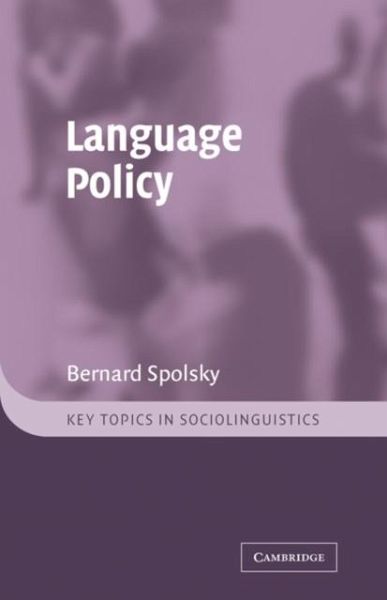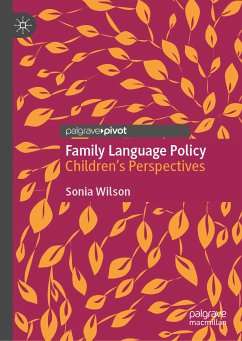
Language Policy (eBook, PDF)
Versandkostenfrei!
Sofort per Download lieferbar
32,95 €
inkl. MwSt.
Weitere Ausgaben:

PAYBACK Punkte
16 °P sammeln!
Language policy is an issue of critical importance in the world today. In this introduction, Bernard Spolsky explores many debates at the forefront of language policy: ideas of correctness and bad language; bilingualism and multilingualism; language death and efforts to preserve endangered languages; language choice as a human and civil right; and language education policy. Through looking at the language practices, beliefs and management of social groups from families to supra-national organizations, he develops a theory of modern national language policy and the major forces controlling it, ...
Language policy is an issue of critical importance in the world today. In this introduction, Bernard Spolsky explores many debates at the forefront of language policy: ideas of correctness and bad language; bilingualism and multilingualism; language death and efforts to preserve endangered languages; language choice as a human and civil right; and language education policy. Through looking at the language practices, beliefs and management of social groups from families to supra-national organizations, he develops a theory of modern national language policy and the major forces controlling it, such as the demands for efficient communication, the pressure for national identity, the attractions of (and resistance to) English as a global language, and the growing concern for human and civil rights as they impinge on language. Two central questions asked in this wide-ranging survey are of how to recognize language policies, and whether or not language can be managed at all.
Dieser Download kann aus rechtlichen Gründen nur mit Rechnungsadresse in A, B, BG, CY, CZ, D, DK, EW, E, FIN, F, GR, HR, H, IRL, I, LT, L, LR, M, NL, PL, P, R, S, SLO, SK ausgeliefert werden.













